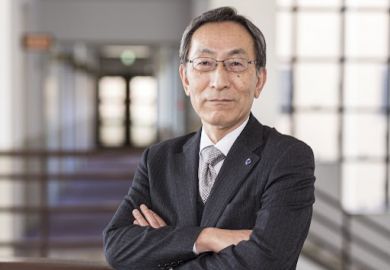点击阅读英文原文
大学教育的标准模式是招募学生参加已有的学位课程,该课程由已经建立了许多年甚至数十年的学院提供。即使可以灵活地制定新计划,这些计划也可能需要很长时间才能获得批准并得以实施。
因此,大学创造知识和传递技能的能力很大程度上取决于其自身的学术实力。同时,世界日益全球化,推动了更快的变革和创新。
如果高等教育机构要抛弃阻碍其跟上时代步伐的约束呢?如果高校(尤其是规模较小、没有巨大人才库的大学)每年决定提供什么课程,然后聘请最优秀的教师以临时合同授课呢?
我认为这种方法在一年制硕士学位课程中特别有价值,尤其是以3.5周为一个模块,连续8个模块的长度(每个周期间休息半周)进行授课。这样一来,该大学就可以只为单独的模块聘请讲师,而不必花费整个学期或学年的费用。
这样的模块性结构已经在科罗拉多学院(Colorado College)、爱荷华州康奈尔学院(Cornell College)和加拿大奎斯特大学(Quest University)实行。在18天的时间里,每天进行3小时的研讨会或辅导式教学,这比传统的10至16周的硕士课程的学习强度要大得多。整个课程都可以在合适的校外地点进行,例如在特定的语言环境、自然栖息地或工业地点中。
学校可以通过一个框架来确保质量。该框架将所有教授的课程归入一个认证过的“文理硕士”资格范围内,或归入该大学的总体认可范围内。一个专门的项目和招生小组将确定来年将要提供的教学项目,然后发出申请邀请。或者,学校可以进行开放式录取,从中择优选择具有与其学位类似的先决条件和偏好选择的申请人。
至于要设立多少课程、招收多少学生,学校需要制定一个公式,以最佳平衡自身和学生的需求与资源。但是,让我们想象一下,在一个拥有1000名本科生的小型大学中设立一个硕士项目。该项目每年有100名学生,分设10个不同类别的课程——小班制可以保证密集的学习环境。这意味着学校一共提供80节课,需要80名讲师。如果每个模块的教师总薪酬为1万美元(包括薪水、机票、住宿和其它费用),则每位学生的总费用为8000美元。
每个课程可以指定一位首席教授来主导教师招聘并选择其他合适的教师。全球有成千上万的学者正在进行学术假期或处在访问职位,这些学者和荣誉教授显然是招募对象。此外,许多学者可能在自己的工作之外愿意担任临时性职位。
在与我本身领域相近的领域里,我能够找到许多符合这些条件的学者。金钱也不是他们的唯一动力。许多年复一年教授相同课程的同事的积极性很低。他们很有动力打破常规并接受这样的合同制职位。
一所作为全球人才的经纪人,而非其教育产品贸交易员的大学可能会被指是其它大学的寄生虫。但是,在一位学者的职业中,在他校的访问性职位或短期研究职位通常会被区分开来。在文中设想的硕士项目中教学包括分担特定课程的教学、作业和考试的任务,以及对顶点项目或论文的指导。这可以视为对个人经验的补充和培训,从而使其自身大学从中受益。
此外,如果我们认为高等教育机构不是知识创造和分配中的竞争者,而是合作伙伴,那么短期内相互出借教师不应该被视为侵犯了某一方的利益。
当然,如果此类计划被广泛采用,那么空闲的访问教授和荣誉教授将很快被抢聘一空。项目负责人因而不得不转向聘请职业早期学者。一些读者可能会反对这一做法,因为这将进一步加剧零工经济,削弱这些学者的安全感和合作感。这些后果可能出现。但是,这也会被此类计划为学生和雇主带来的巨大利益抵消。
这种完全灵活的框架将使大学能够在知识经济和劳动力市场发生变化时(包括当前的大流行病等挑战)做出反应,并不断引入新的知识途径和专业观点。任何采用这类方法的大学都将为学生提供宝贵的职业生涯的最佳准备。
托马斯·施耐德(Thomas Schneider)系中国南方科技大学(Southern University of Science and Technology, SUSTech)国际合作部副部长。 施耐德教授希望借此感谢奎斯特大学校长皮特·恩格勒(Peter Englert)邀请他设计一个被称为“思想实验”的类似课程。
本文由陆子惠为泰晤士高等教育翻译。
后记
Print headline: Students should be the masters of choices in postgraduate degrees





